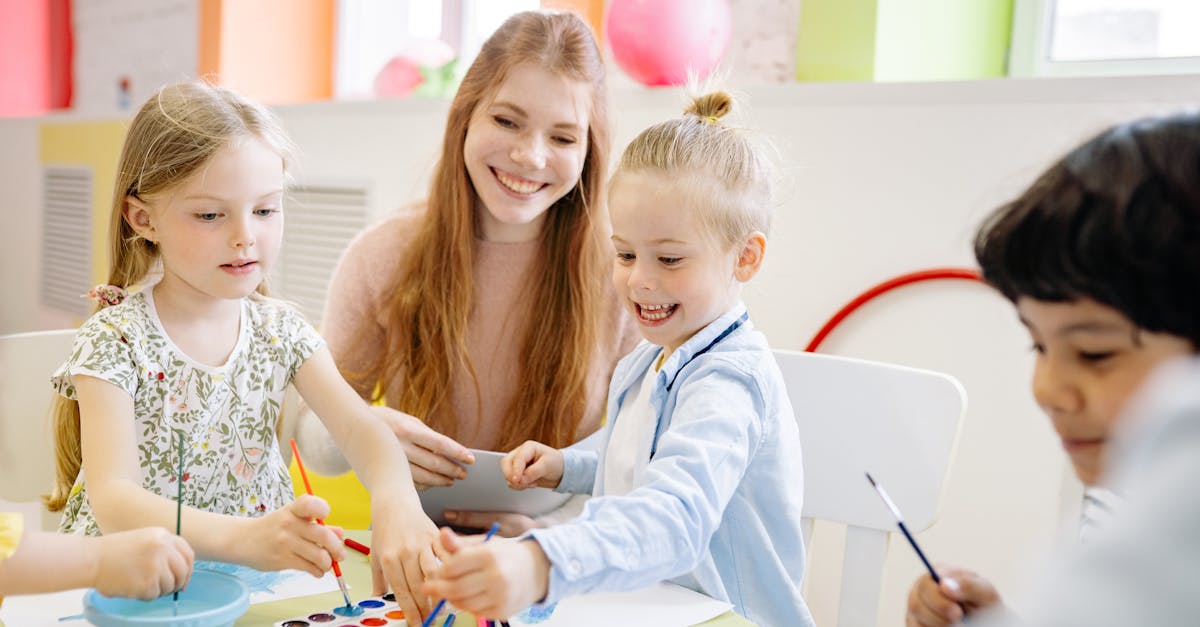Why Forgiveness Matters
Imagine your little one running around full of joy. Suddenly, a playmate snatches a toy, and the fun fades to tears. Does this sound familiar? Understanding the impact of forgiveness on preschoolers is essential for their happiness and well-being.
Forgiveness helps preschoolers manage conflicts and reduces stress. It enables them to let go of grudges and encourages emotional resilience. Children who practice forgiveness show signs of higher self-esteem and positive social behavior.
Imagine forgiveness as the superhero power unlocking your child’s potential to thrive emotionally. Let’s embark on a journey into the wondrous world of preschool emotions, where forgiveness reigns supreme.

The Emotional Rollercoaster
Preschoolers are little bundles of vibrant emotions. One moment they’re giggling like there’s no tomorrow; the next, they’re in full meltdown mode over an accidental juice spill. It’s an emotional rollercoaster, folks!
Young children often feel big emotions, and the concept of forgiveness can be a tough nut to crack. They may understand the word, but applying it in real-life situations is tricky. When excited emotions collide, it can seem overwhelming.
By teaching forgiveness, you help your child regulate these emotions, reducing chances of resentment and fostering peaceful interactions. Encourage expressions like:
- “It’s okay,”
- “Let’s try again.”

Teaching Forgiveness at Home
Home is where the heart—and the best education—begins. Teaching forgiveness at home can transform your little one’s world view.
Be a Model of Forgiveness
Start by being a strong model of forgiveness. Kids are incredibly observant, so when you apologize for little mishaps, they learn to do the same.
Utilize Stories for Learning
Narratives in books or cartoons where characters forgive can offer valuable lessons. Consider incorporating these stories into your reading time to reinforce the concept.
Engaging Role-Playing Activities
Role-playing scenarios work wonders too. For instance, imagine acting out a pirate adventure where characters forgive each other after a plank mishap. Through these playful experiences, your child grasps the essence of forgiveness and implements it naturally.

Summary
- Model forgiveness through your actions.
- Read stories that highlight forgiveness.
- Engage in playful role-playing activities.
By embracing these strategies, you can create a nurturing environment that fosters understanding and compassion in your child’s life.
Practical Steps to Guide Your Child
Ready to help your preschooler embrace forgiveness? Here are practical steps!
1. Start with ‘Forgiveness Time’
Introduce a daily routine where you and your child discuss minor squabbles from their day. It’s like a mini talk show hosted in your living room!
2. Guide Your Child Through the Process
- Acknowledge the problem: Help your child identify what happened.
- Express feelings: Encourage them to share their emotions regarding the situation.
- Release negative emotions: Teach them to let go of grudges and move on.
3. Encourage Forgiveness
Have them practice saying, ‘I forgive you’, even if it takes time to feel genuine.
4. Use Storytime as a Tool
Reading books like ‘The Forgiving Friends’ can also enhance their understanding of forgiveness.
With consistent practice, forgiveness becomes second nature.

Common Challenges and How to Tackle Them
No superhero journey is without its villain, and in our story, it’s the challenge of forgiveness. Preschoolers often find saying ‘I forgive you’ tough, and it’s normal. Emotions might still be raw, and understanding the need to forgive takes time.
Often, a simple apology seems daunting. Address these challenges by ensuring open communication and nurturing a safe environment for emotional expression. Encourage your child to talk about their feelings. Repeat phrases like:
- ‘It’s okay to feel hurt,’
Fostering empathy and building forgiveness gradually is essential. Celebrate these steps, making the journey exciting!

Sharing Forgiveness Stories
Who doesn’t love a good story, especially when it’s about forgiveness? Sharing tales where forgiveness played a central role can powerfully resonate with children. Maybe your toddler accidentally colored on the walls, but you forgave them with a smile.
Stories like these, shared over dinner or bedtime, teach the value of letting go and moving forward. Invite your child to share their forgiveness moments too. Captivating tales that emphasize courage and compassion set an encouraging tone, creating a memory bank of learning moments.
And hey, who knows, you might have your little writer penning a bestseller, ‘Forgiveness Adventures of the Tiny Tot’!

Join the Forgiveness Conversation
Calling all parents and guardians! Let’s unite in promoting forgiveness in our homes and communities. Parents, share your forgiveness wins and challenges in the comments. How do you navigate emotional tides? We’d love to hear your anecdotes and tips.
Respond to each other’s stories, creating a supportive community. By sharing insights, you empower one another to cultivate forgiving environments.
Let’s make forgiveness a viral trend, ensuring our tiny superheroes grow up with the emotional resilience to conquer the world! Who knew a blog could spark a movement?

Join the conversation today and help us spread the message of forgiveness far and wide!
